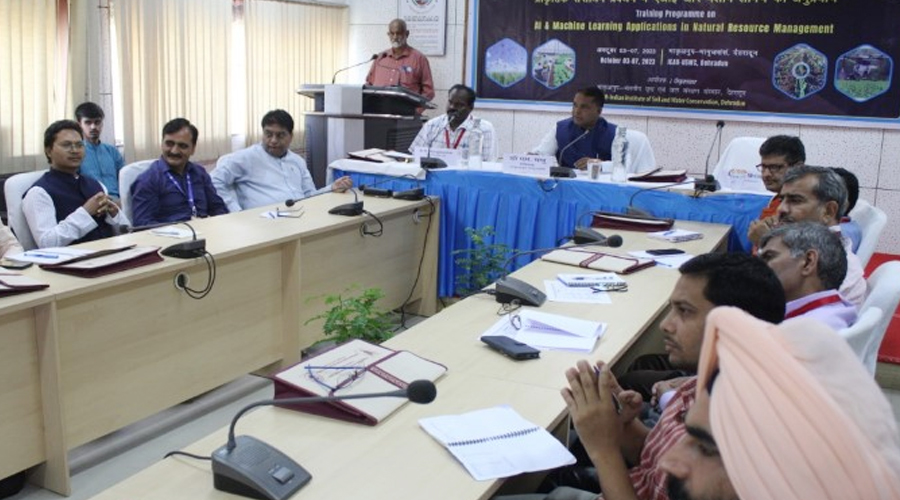
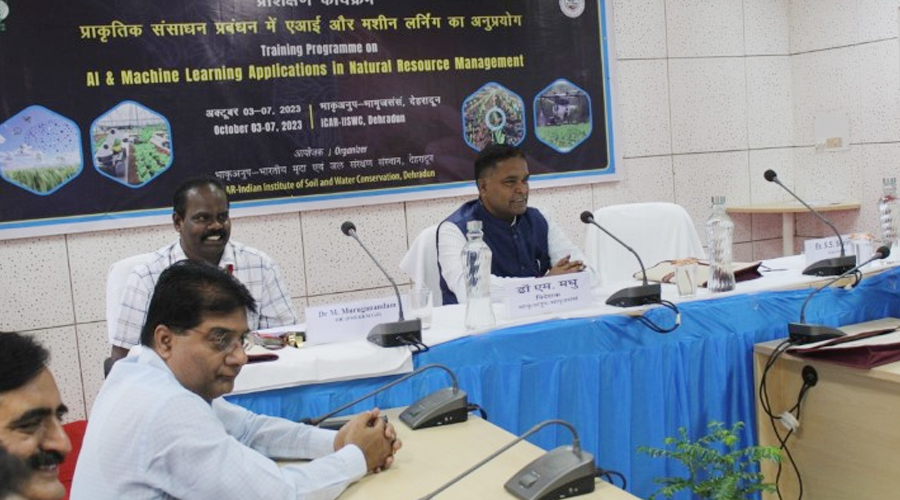
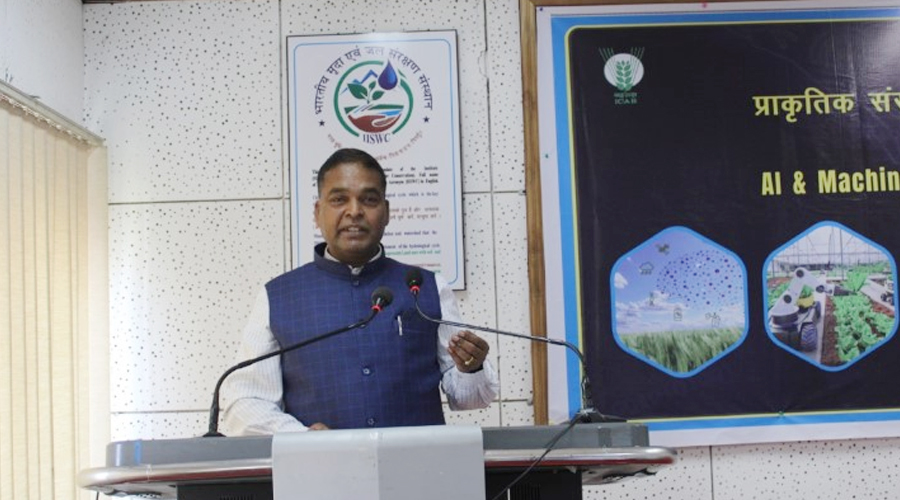
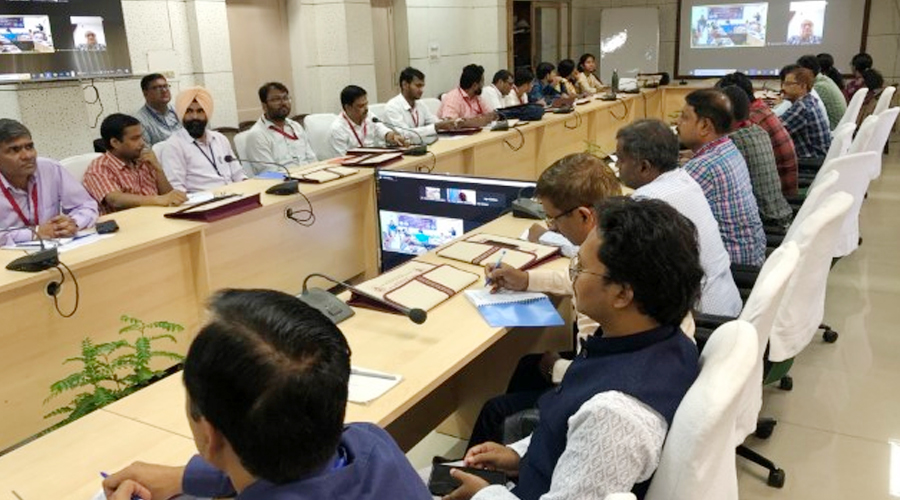
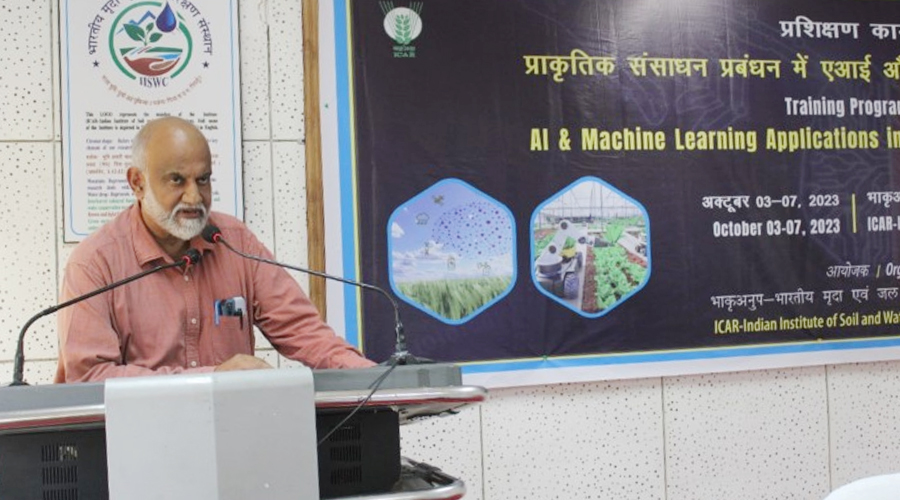
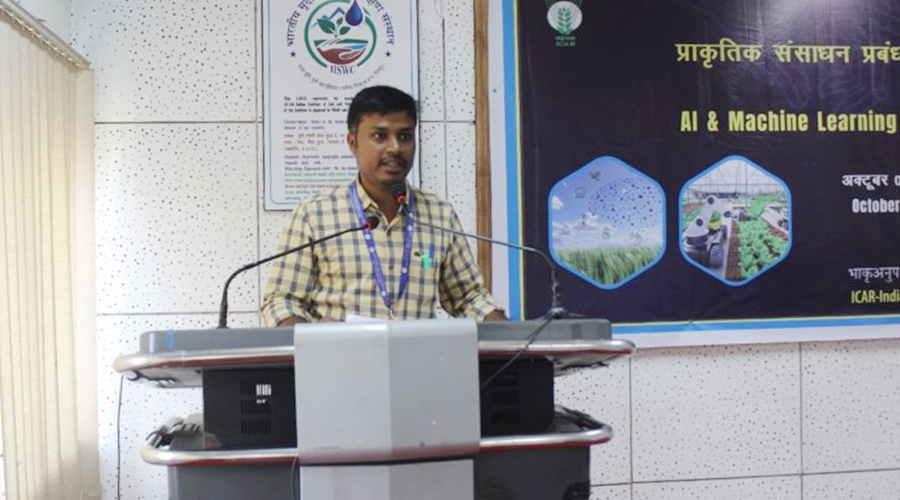
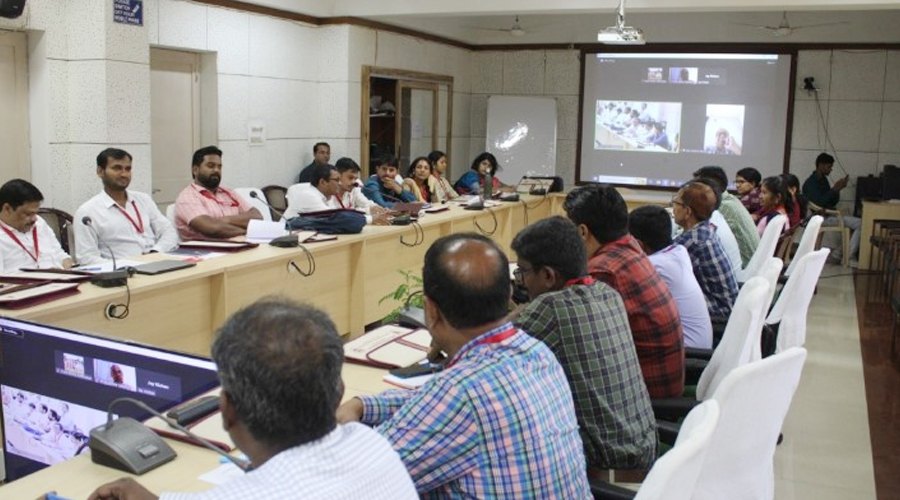
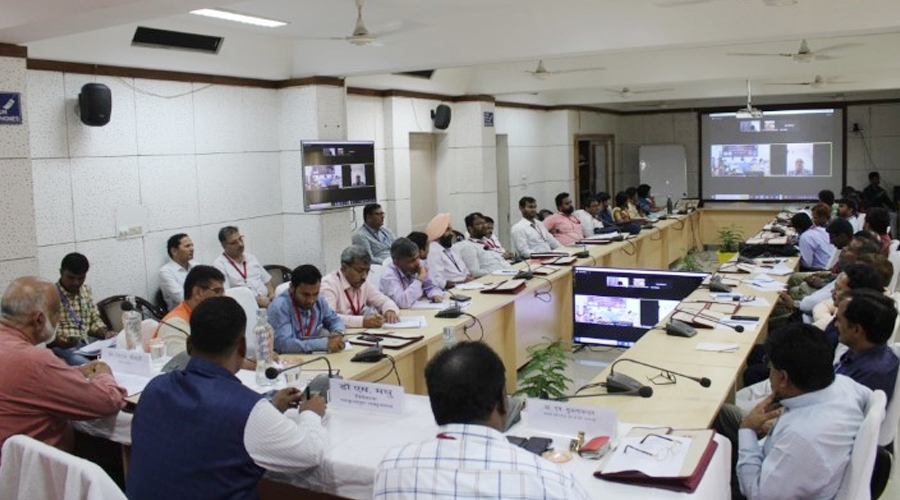
The Indian institute of Soil and Water Conservation (ICAR-IISWC), Dehradun is organizing a training on Application of AI and ML in Natural Resources Management to scientists of the Institute and other NRM institutes of ICAR during 3rd to 7th Oct. 2023 for 5 days, at the IISWC Dehradun.
Dr. Ajay Sharma, VC of MBM University, the chief Guest of the inaugural program addressed the participants online and shared his views on the importance of AI and ML and the need to familiarize them in research and development for the societal and national development.
Dr M Madhu, Director welcoming the participants and the guests he briefed the work areas of the Institute and the potential application of AI &ML. He informed that this is the first of its kind training at the Institute.
Prof Abhay Saxena, Dean School of TCM, DSVV, Haridwar is the master trainer of the program and spoke on the whole range of the topics and hands-on practical sessions included in the program.
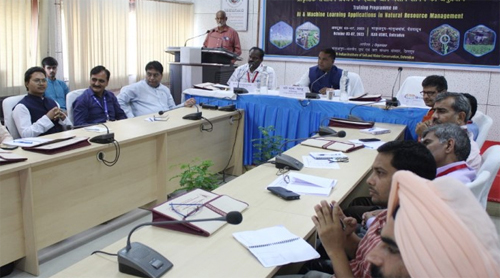
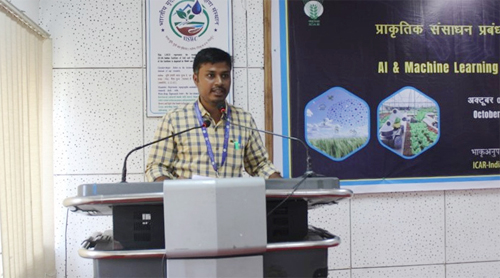
Er SS Shrimali, the Course Director, earlier welcomed the participants and shared the contents and details of the training program.
Dr M Muruganandam, Principal Scientist and Head (PME &KM Unit) as one of the course Co-Directors spoke on the genesis of the training course and the schedule that was developed in consultation with faculty members and trainers. The program was coordinated by the PME & KM unit of the Institute.
The program is designed to benefit early and mid-career researchers, particularly scientists from ICAR's NRM institutes. It would provide comprehensive understanding about AI and ML tools and techniques, enhance knowledge and skills to apply AI and ML technologies and help promote collaboration and knowledge sharing among participants. In all, the program would help improve decision-making particularly in soil and water conservation and watershed management besides to solve real-world problems by improving efficiency, accuracy, and cost-effectiveness of current conservation practices, leading to more productive and sustainable agricultural practices and healthier watersheds. Understanding potential of AI and ML would help process vast amounts of data and provide accurate predictions and recommendations.
Key contents of the training programme would include basics of Artificial Intelligence (AI) and Machine Learning (ML), AI applications in daily life, Basics of open source AI & ML software and practical exploration, Collaborative AI Tools for NRM Scientists, Machine learning and data analytics, Hands on practical and group assignments, Application of Fuzzy logic and neural networks for engineering applications, ML and Deep learning (DL) for Geospatial data: Approaches and Applications, AI application in crop classification and yield prediction, Use of DL for semantic segmentation of LiDAR point cloud, Developing recommendation systems using AI & ML to improve agricultural planning, Lean & continual Improvement: Attributes and techniques for enhancement of work output and Future of Artificial intelligence in perspective of predictive and adaptive AI.
The resource persons are drawn from different organizations for imparting diverse knowledge domine and expertise on the suberect. Prof Abhay Saxena, Dean School of TCM, DSVV, Haridwar, Dr Shrwan Ram, Head & Prof Computer Science & Engineering MBM University, Jodhpur, Er Sunita Kothari, Consultant, Dr Kamal Pandey ISRO-IIRS, Dr Varun Singh, MNNIT Allahabad, Prayagraj, Prof Ashutosh K. Bhatt Associate Professor UoU, Haldwani, Dr Amit Ramesh Khaparde Assistant Professor G B Pant DSEU Okhla, New Delhi, Dr Vaibhav Kumar Indian Institute of Science Education and Research Bhopal, Prof Sudhanshu Joshi Associate Professor Doon University, Dr Naveen Pandey Assistant Professor CS Dept DSVV, and Dr Chandrashekhar Patel Assistant Professor Amity University, Jaipur, Rajasthan
Convener of the training Dr Bankey Bihari, OIC (HRMS), and Co-Course Director Dr Sadikul Islam IISWC speaking on the training schedule profusely thanked the participants on behalf of the organizers.
In the training course about 30 scientists and technical persons from different centers of the institute and other ICAR institutes with the expertise on 12 different agricultural sciences are participating. Besides, few online participants are also getting benefitted from the training as the program is being scheduled in hybrid mode. The programs is one of the outcomes of the Research Adversity Committee’s recommendation.